Court hears Abdul Hakim Belhaj rendition appeal
- Published
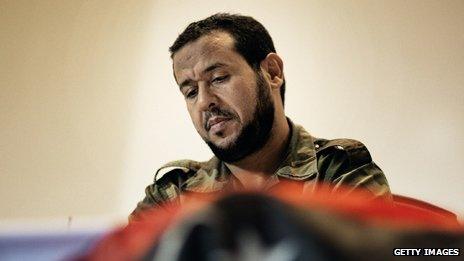
Mr Belhaj was an opponent of then-Libyan leader Col Muammar Gaddafi at the time of his rendition
Lawyers for a man who says he was tortured after his rendition to Libya have said the Court of Appeal should overturn a block on him suing the UK.
Abdul Hakim Belhaj claims the UK government helped to arrange for him to be forcibly transported from China to Libya in 2004, just as he was about to fly to London to claim asylum.
Mr Belhaj says he was then tortured as he had opposed the Gaddafi regime.
Last December, the High Court found the claims were beyond its jurisdiction.
At last year's hearing, the judge, Mr Justice Simon, said Mr Belhaj had a "well-founded claim" but pursuing it would jeopardise national security.
Lawyers for Mr Belhaj have now taken the case to the Court of Appeal, where Richard Hermer QC said Mr Belhaj and his wife believed "the UK played a key role in their mistreatment and wish to pursue a remedy against the UK and its officials for that".
'Well-founded claim'
Mr Belhaj, one of the leaders of the uprising against Colonel Muammar Gaddafi, says he was abducted - along with his pregnant wife, Fatima Boudchar - in China in 2004 as he was about to fly to London to claim asylum.
He alleged the UK had tipped off Libyan intelligence services and helped the US arrange his rendition.
After he was returned to Libya, Mr Belhaj spent six years in jail, while his wife was released shortly before giving birth.
The couple had been attempting to bring a case against former Foreign Secretary Jack Straw and former senior MI6 official Sir Mark Allen.
The High Court ruled that because most of the claims related to officials in China, Malaysia, Thailand and Libya the allegations were "non-justiciable" in the UK.

Analysis
By Dominic Casciani
This case matters for one simple reason: it involves allegations that the UK colluded in handing over a man to a regime that tortured him. And a decade on from these events we are still no closer to finding out exactly what happened.
The government has settled similar claims from former Guantanamo Bay inmates at a cost of millions of pounds - but a planned judge-led inquiry into these issues was scrapped.
That judge, Sir Peter Gibson, said there needs to be further investigation into complicity in rendition and torture - and the task was handed to Parliamentarians on the Intelligence and Security Committee (ISC).
Critics believe the ISC isn't equipped to get the answers - an accusation the committee would deny - but that's another reason why the Belhaj case is so important.

However, addressing the Court of Appeal, Mr Hermer, representing Mr Belhaj, said the court was "constitutionally competent" to deal with the case.
"This court is the only forum in which remedies could possibly be obtained for those acts and omissions of the UK executive and its officials.
"If it can't be heard before this court, it will not be heard anywhere else as the principle of state immunity means it is highly unlikely that proceedings could be brought against UK officials in any other jurisdiction," he said
Mr Hermer said the case had "profound and far-reaching" implications for the rule of law in a world in which counter-terrorism was being fought by international co-operation. The effect of the High Court decision was that the state was to be placed above the law, he said.
The contested hearing is expected to last three days.
Mr Belhaj is now the leader of Libyan Islamist party Al-Watan.
Related topics
- Published20 December 2013
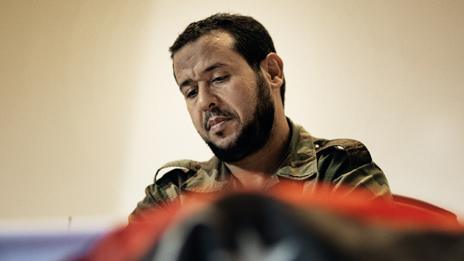
- Published21 October 2013
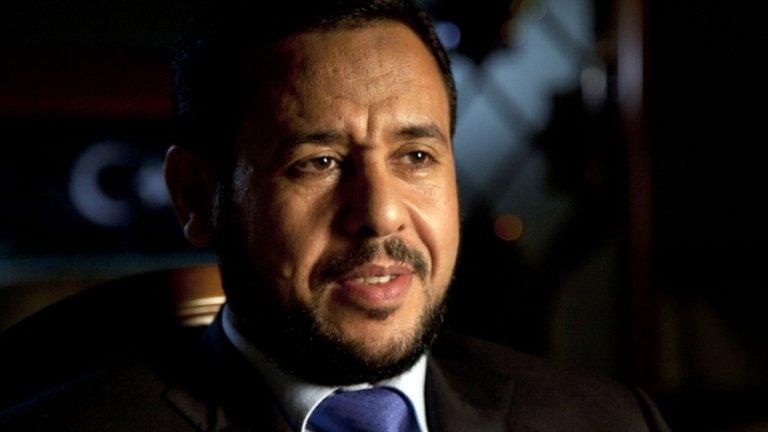
- Published10 May 2018
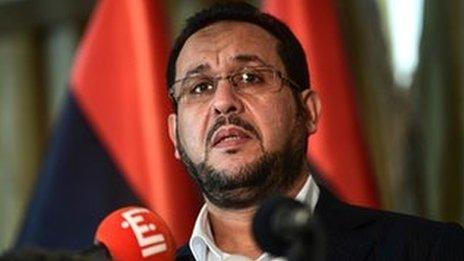
- Published21 May 2013
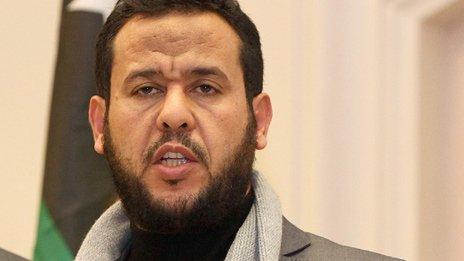
- Published4 March 2013
